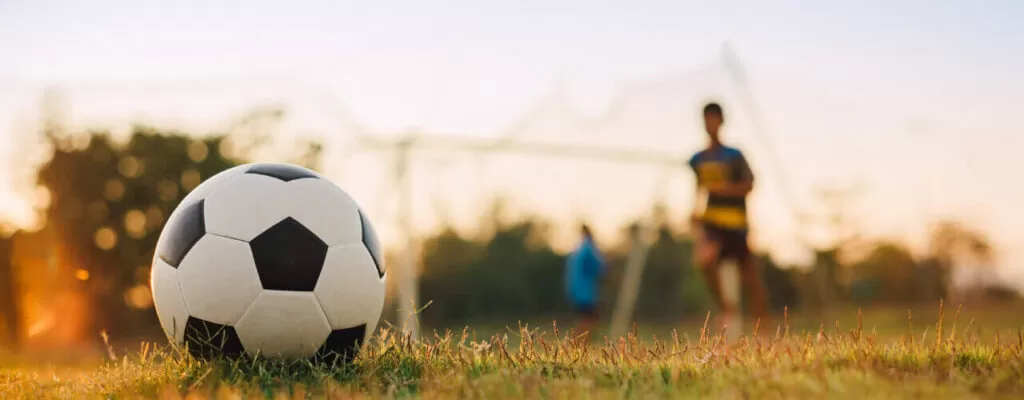Are you struggling to recover from a soccer injury? Are you looking to take your training to the next level? At our physical therapy clinic, our therapists understand the most effective way to resolve your injuries and enhance your soccer-specific training for optimal performance!
Soccer is the most popular youth sport globally, and the number is increasing each year. Unfortunately, injury rates are also growing, and the need for comprehensive prevention, rehabilitation, and performance training programs are essential.
Fortunately, at Tennessee Sports Medicine in Knoxville, our physical therapists are highly skilled at resolving soccer injuries and soccer-specific training programs.
Call today to learn how to help provide the most advanced training and rehabilitation to make sure you are playing at your highest level!
Common soccer-related injuries Tennessee Sports Medicine treats
Most soccer injuries occur in the lower extremities more frequently in games than in training sessions. With proper soccer-specific training methods, you can reduce the risk of injury and help keep athletes on the field.
Although there is some injury variability depending on the gender of the athlete and the experience/expertise, the most common injuries are similar for all age groups. The most common soccer-related injuries include:
- Ankle sprains: The ankle sprain is the most common injury for male soccer players and accounts for over 15% of injuries. Ankle sprains are typically the result of a sudden stop or change of direction or due to improper footwear or field conditions.
Interestingly, recurrent ankle sprains account for as many as one-quarter of the total number of sprains. This means proper rehabilitation is essential to minimize the recurrence of ankle sprains. - Anterior cruciate ligament (ACL). ACL injuries are a significant concern in soccer, particularly among female athletes and especially 12-20-year-old females. ACL injuries are most commonly associated with change in direction or deceleration (non-contact) movements. Weakness and/or neuromuscular deficits are associated with an increased risk of ACL injury. Other variables, including anatomical factors, also increase the likelihood of ACL injury.
- Concussion. Concussions are a result of brain acceleration after contact. Player-on-player contact during practice or games is the most common reason for concussions. Heading the ball is the most common sport-specific activity that causes a concussion. If the balls are overinflated or inappropriately large for the age and size of the soccer player, there is an increased risk of head injury in young soccer players.
- Muscle-tendon injuries. The most common strains and contusions occur to the upper leg and primarily include the quadriceps, groin, and hamstring muscles. The risk of muscle strains increases with the age of the player. Other factors like a history of the previous injury and the later portions of a game also contribute to the increased risk.
Rehabilitation should start immediately following most injuries to ensure the fastest recovery possible. In addition, a proper progression back to soccer can provide a safe return to play without risking re-injury.
How physical therapy in Knoxville can help
Our physical therapists know the most effective ways to help soccer players. At Tennessee Sports Medicine in Knoxville, we provide injury assessments, treatment plans, injury prevention programs, and return to sports protocols.
It is essential to assess the nature of the injury to identify all the factors contributing to the injury. We will take a medical and sport-injury history to understand more about the athlete’s participation history, their history of previous injuries, and their overall health status.
Next, we use the information from our comprehensive assessment to create an individualized, soccer-specific program to alleviate pain and restore joint and tissue mobility. There are particular injury-specific protocols, including concussion protocols, that we will follow to ensure your safe return to soccer. We will include:
- Sport-specific strengthening.
- Neuromuscular training.
- Dynamic exercises that are designed to restore function and prevent future injuries as the athlete progresses.
In addition, your therapist will instruct you on the most effective injury prevention strategies, including:
- Stay within your abilities: It is vital to train and practice any physical activity by starting small and building up. Training errors, especially over-training, can lead to more injuries and less time on the field.
- Strength training: Soccer injuries are reduced with proper training programs. Strength training is one of the most effective injury prevention strategies to help stay injury-free.
- Nutrition: Eating the right foods is the foundation for good health and injury prevention. Specifically, a scientifically-backed approach that does not include any fad diets. Recovery meals are as crucial as pre-game meals.
- Sleep: Proper rest is the most effective strategy with the most significant effect on injury prevention. Studies have shown from high school to professional athletes that lack of sleep increases the risk of injuries.
- Hydration: Getting adequate fluids is essential for recovery and injury prevention.
As you recover from your injuries, your physical therapist will then incorporate a “return to sport” progression to assist you in a safe return to training and competition.
We will include training in neuromuscular and proprioceptive performance. These exercises have been shown to decrease the incidence of ligament injuries (i.e., ankle sprains and ACL injuries) in athletes.
Incorporating a gradual reintroduction to sport-specific demands is essential for a safe return to soccer. Soccer-specific progression will provide the framework for combining injury-specific exercise, cardiovascular fitness, and the return to kicking progression allowing the athletes’ return to soccer!
Contact Tennessee Sports Medicine in Knoxville to get started!
If you play soccer or someone you love plays soccer, call Tennessee Sports Medicine in Knoxville today and learn how to help you resolve injuries and enhance your performance.
Our team will assess the injury and provide effective solutions for your recovery and return to soccer!
Sources:
- https://bjsm.bmj.com/content/39/8/473
- https://bjsm.bmj.com/content/51/3/185
- www.usyouthsoccer.org/media_kit/keystatistics/
- https://www.publications.aap.org/pediatrics/article-split/144/5/e20192759/38190/Soccer-Injuries-in-Children-and-Adolescents
- https://journals.humankinetics.com/view/journals/ijspp/15/5/article-p671.xml?utm_source=researcher_app&utm_medium=referral&utm_campaign=RESR_MRKT_Researcher_inbound
Tags: physical therapy, physical therapist, sports injury, soccer training, training and enhancement



